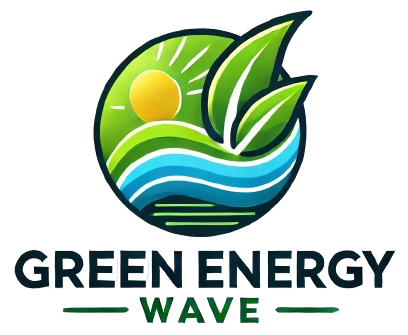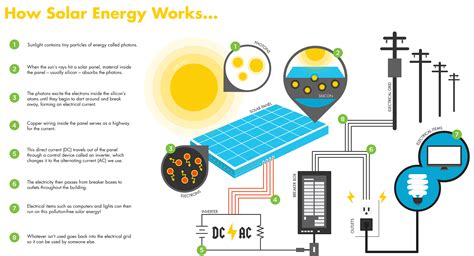Explore the fundamentals of solar power, its financial benefits, installation considerations, and environmental impact while uncovering future trends in energy sustainability.In an era where sustainable living is increasingly prioritized, many homeowners are exploring the potential of solar power as a viable energy solution. The question often arises: is investing in solar power worth it? This article unpacks the ins and outs of solar energy, guiding you through its fundamental principles, how it specifically benefits homeowners, and the financial implications of choosing this clean energy source. We will examine the installation costs, long-term savings, and the environmental benefits that underscore solar power as a sustainable choice. Additionally, we’ll look at future trends in the solar industry to help you understand its role in tomorrow’s energy landscape. Join us as we answer your pressing questions and determine whether solar energy is the right investment for you and your family.
Understanding The Basics: What Is Solar Power?
Solar power harnesses energy from the sun, converting it into electricity or heat for various applications. It’s an abundant and renewable energy source that can be utilized in multiple ways, making it an appealing option for homeowners, businesses, and industries alike.
The core technology behind solar power includes solar panels (photovoltaic cells) that capture sunlight and convert it into direct current (DC) electricity. This electricity is then converted into alternating current (AC) by an inverter, making it suitable for use in home appliances and the electrical grid.
In addition to photovoltaic systems, there are solar thermal systems that use sunlight to heat water or air for residential and commercial heating. Understanding these basic principles is essential for homeowners considering the transition to solar energy.
By investing in solar technology, many property owners find themselves asking, is solar truly a worthwhile investment? This decision will depend on various factors such as local climate, energy needs, and available incentives. Overall, solar power is recognized not just for its potential financial benefits but also for its contribution to a sustainable energy future.
How Does Solar Power Work For Homeowners?
For homeowners, is solar power a feasible option? The answer lies in understanding how solar energy systems operate. Solar power systems primarily consist of photovoltaic (PV) panels that convert sunlight into electricity. These panels can be installed on rooftops, providing a direct source of energy for the home. Here’s a breakdown of the process:
1. Solar Panels: When sunlight hits the solar panels, it excites electrons in the material, creating an electric current. This current is then converted from direct current (DC) to alternating current (AC) by an inverter, making it usable for home appliances.
2. Energy Consumption: Homeowners can use the electricity generated by the solar panels to power their home. Any excess electricity produced can either be stored in batteries for later use or sent back to the grid, depending on the system setup.
3. Net Metering: In many regions, homeowners may benefit from net metering, which allows them to earn credit for the surplus energy they contribute back to the grid. This can significantly reduce their utility bills.
4. Monitoring Systems: Many solar power installations come equipped with monitoring systems that allow homeowners to track energy production and usage. This helps in optimizing energy consumption and assessing the system’s efficiency.
Understanding the mechanics of solar systems is critical for homeowners considering the investment. As they can see, the functionality of solar technology not only aligns with financial savings but also promotes a sustainable way to power their households. Thus, is solar power worth it? For many, it’s a resounding yes.
Financial Benefits: Is Solar Energy Cost-Effective?
When considering whether is solar energy cost-effective, it’s crucial to examine both the initial investment and the long-term financial implications. Solar power can significantly reduce your electricity bills, and in some cases, homeowners may even generate income through programs like net metering.
Initially, the cost of purchasing and installing solar panels can be substantial, but federal tax credits and state incentives can dramatically lower this expense. For instance, in many areas, homeowners can claim a federal tax credit of up to 26% of the installation costs, which decreases their upfront investment.
Long-term, solar energy can save homeowners thousands of dollars over the lifespan of the system, which typically lasts 25 years or more. According to various studies, the average homeowner can see a return on investment ranging from 20% to 30%, depending on local energy prices and utility rates.
Additionally, as energy prices continue to rise, the savings from solar power become increasingly pronounced. By investing in solar energy, homeowners can insulate themselves from fluctuating energy costs and enjoy predictable monthly expenses.
Moreover, solar panels often increase the property value. Homes equipped with solar energy systems are sought after in real estate markets, often selling for more than comparable homes without solar. This added value can further enhance the financial benefits of opting for solar energy.
In essence, the financial benefits of solar energy make it a compelling option for homeowners. By weighing installation costs against the potential for substantial long-term savings and increased property value, the question of whether is solar a viable investment becomes clear.
Evaluating Installation Costs: What You Need To Consider
When considering is solar the right investment for your home, evaluating the installation costs is crucial. Various factors contribute to the total expense, which can vary significantly depending on each situation. Here are some key points to consider:
- System Size: The capacity of the solar power system you choose will directly influence the cost. Larger installations tend to be more expensive but can generate more energy.
- Location: Installation costs can vary based on where you live. Regions with high sunlight exposure may require fewer panels, while locations prone to snow or rain may necessitate advanced solutions.
- Type of Solar Panels: Different kinds of solar panels come with varying costs. Monocrystalline panels are usually more efficient but also more expensive than polycrystalline panels.
- Labor Costs: Hiring a qualified installer is vital for ensuring efficient energy production and safety. Labor costs can vary widely by region and installer experience.
- Permits and Inspections: Additional costs may arise for necessary permits and inspections which can add to the overall project cost.
- Incentives and Rebates: Government incentives can significantly lower the upfront costs. It is essential to research available local, state, and federal programs that may apply.
To give you a clearer picture, we’ve created the following table displaying the average costs associated with solar installation:
| Cost Component | Average Cost |
|---|---|
| System Size (5 kW) | $15,000 – $20,000 |
| Installation Costs | $2,000 – $5,000 |
| Permits/Inspections | $500 – $2,000 |
| Incentives and Rebates | Varies by location (up to 30% federal tax credit) |
Understanding the expense associated with solar energy installations can guide homeowners in their decisions. It’s essential to weigh these costs against the potential long-term savings and environmental benefits as you consider is solar the right choice for your home.
Long-Term Savings: How Is Solar Power Energy Efficient?
One of the most compelling reasons to consider switching to solar power is the potential for significant long-term savings. By harnessing the sun’s energy, homeowners can reduce their reliance on traditional energy sources, leading to lower utility bills over time. Here are some key points to consider regarding how is solar power energy efficient.
- Reduced Energy Bills: After the initial installation costs, solar power systems can significantly decrease your monthly electricity expenses. Many homeowners report reductions of 50% or more in their energy bills.
- Net Metering: In many regions, net metering allows homeowners to sell back excess energy generated by their solar panels to the grid, further contributing to savings.
- Increased Property Value: Homes equipped with solar energy systems often see an increase in property value. Prospective buyers are attracted to the prospect of lower energy costs and a reduced carbon footprint.
- Tax Incentives and Rebates: Many governments offer financial incentives for solar energy installation, providing tax credits, rebates, and even grants that can make solar more affordable.
- Longevity and Low Maintenance: Solar panels generally come with warranties of 25 years or more and require minimal maintenance, making them a wise long-term investment.
When evaluating the long-term savings associated with solar energy systems, it’s clear that the benefits of going solar extend beyond environmental impacts. The ability to lower energy costs significantly and enjoy financial incentives makes adopting solar power an attractive proposition for homeowners.
Environmental Impact: Why Is Solar Power A Sustainable Choice?
Solar power is often heralded as a key component in the transition towards a sustainable energy future. One of the primary environmental benefits of solar energy is its ability to significantly reduce greenhouse gas emissions. Traditional energy sources like coal and natural gas burn fossil fuels, releasing high levels of carbon dioxide (CO2) and other harmful pollutants into the atmosphere. In contrast, solar power generation produces no harmful emissions, making it an eco-friendly alternative.
Additionally, solar energy minimizes water usage, an important consideration in the context of climate change and water scarcity. Conventional energy production methods often require substantial water for cooling and processing, while solar power systems utilize minimal water, thus conserving this precious resource.
By harnessing the power of the sun, solar energy contributes to reducing our dependence on fossil fuels, leading to a decrease in habitat destruction associated with oil drilling and coal mining. Furthermore, as solar technology continues to advance, innovations in manufacturing and disposal processes are being implemented, ensuring that solar panels leave a reduced environmental footprint during their lifecycle.
Investing in solar energy can stimulate local economies, creating jobs in manufacturing, installation, and maintenance. This localized approach not only helps to enhance energy independence but also promotes sustainable practices within communities.
The environmental impact of solar power positions it as a sustainable choice in the quest for cleaner energy solutions. Adopting solar technology plays a critical role in mitigating climate change and fostering a healthier planet for future generations.
Future Trends: Is Solar Power The Future Of Energy?
As the world grapples with the reality of climate change and the urgent need for sustainable energy solutions, is solar power poised to become a dominant energy source in the coming years? Emerging trends suggest that the answer is a resounding yes. Here are several factors contributing to the belief that solar energy will play an integral role in our future.
Firstly, advancements in technology are making solar panels more efficient and affordable. High-efficiency photovoltaic cells can now convert more sunlight into electricity, reducing the cost per watt. As research continues and production methods improve, the price of solar installations is expected to decrease, making solar power more accessible to homeowners and businesses alike.
Additionally, there is a growing global commitment to renewable energy as nations implement stricter regulations on carbon emissions. Incentives such as tax credits, rebates, and subsidies are becoming more common, encouraging residents to invest in solar energy systems. This policy support not only stimulates demand but also establishes a more favorable economic environment for the growth of the solar industry.
Another trend to watch is the rise of community solar projects. These initiatives allow multiple participants to invest in a shared solar energy system, making it easier for those who cannot install panels on their properties—like renters or apartment dwellers—to benefit from solar energy. Such projects can foster a greater sense of community while expanding access to clean energy sources.
The integration of solar power with smart grid technologies and energy storage solutions, like batteries, offers a promising direction for future energy systems. These technologies can help balance energy demand and supply, making solar power more reliable and effective in meeting consumers’ energy needs.
Overall, the synergy of technological advancements, supportive policies, community engagement, and smart energy solutions is paving the way for solar power to not only remain a competitive energy source but to thrive as a cornerstone of our future energy landscape. The question isn’t just is solar power worth the investment anymore—it’s more about how quickly we can embrace it for a sustainable, energy-efficient world.
Frequently Asked Questions
Solar power reduces electricity bills, provides energy independence, and contributes to environmental sustainability by decreasing greenhouse gas emissions.While the upfront cost of solar panels can be higher, the long-term savings on electricity bills and potential government incentives often make solar power more financially viable than traditional energy sources.The payback period for solar panel investments typically ranges from 5 to 10 years, depending on factors such as sunlight exposure, local electricity rates, and installation costs.Yes, many governments offer incentives such as tax credits, rebates, and grants for installing solar power systems, which can significantly reduce the overall investment cost.Installing solar panels can increase property value, as many homebuyers are willing to pay more for homes with solar energy systems due to the promise of lower energy costs.Before investing in solar power, consider your geographic location, roof condition, energy needs, local regulations, and available incentives to ensure a sound financial decision.Yes, solar power systems can still generate electricity in cloudy or less sunny regions, although their efficiency may be lower compared to sunnier locations. Technological advancements, such as more efficient solar panels, have improved their performance in these conditions.










